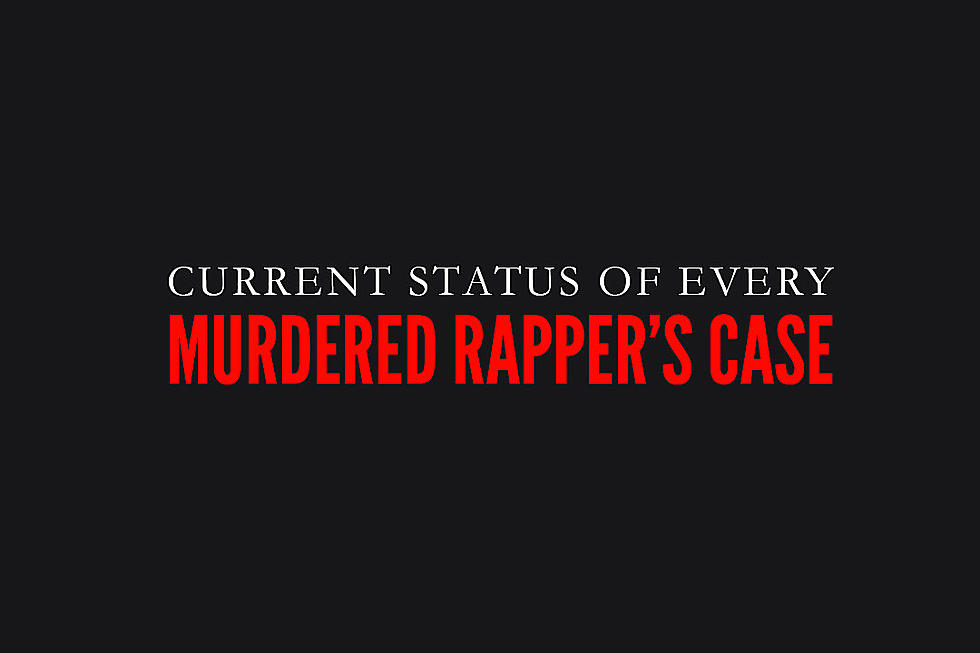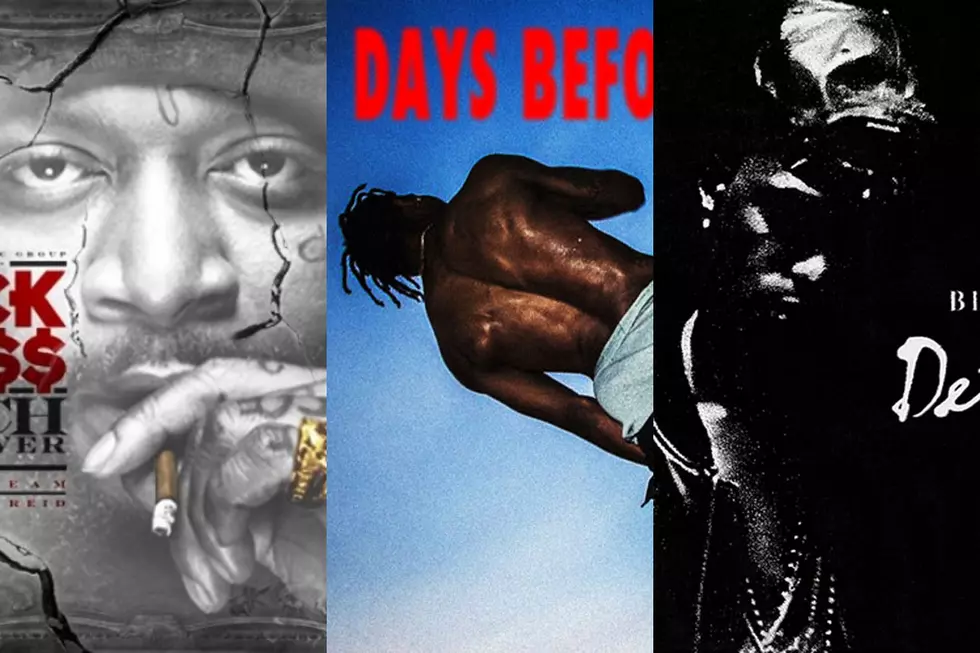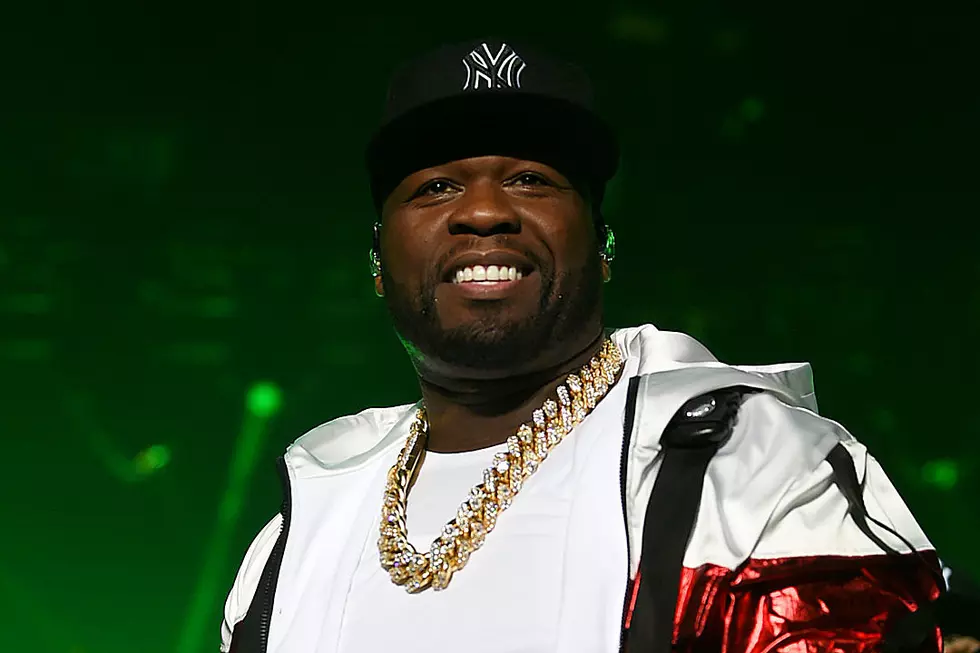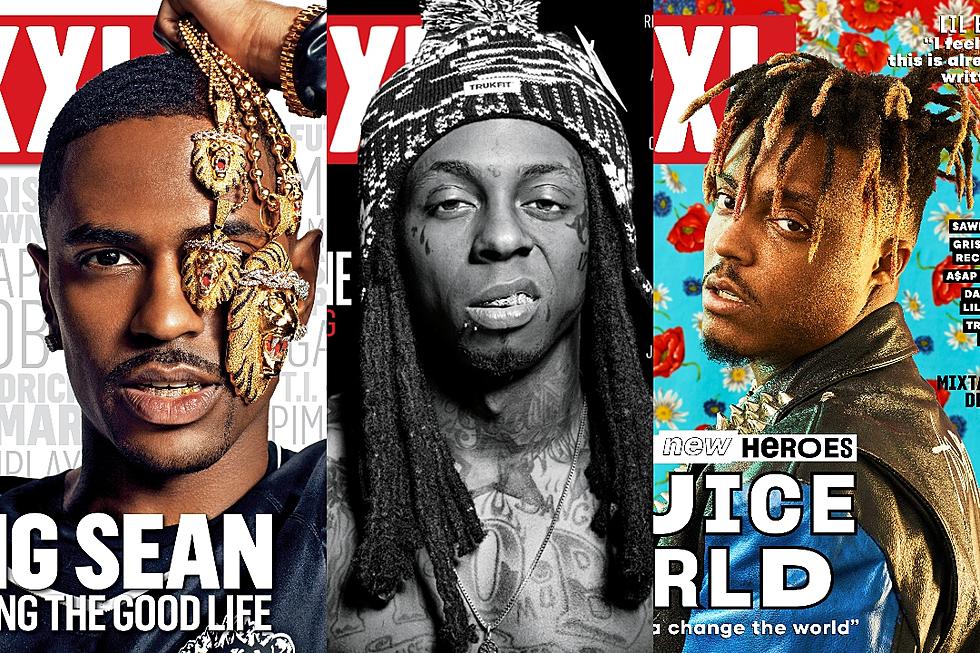
Jury Begins Deliberations In Jimmy Henchman Murder For Hire Trial
Closing arguments wrapped up Tuesday, Mar. 4, in the murder-for-hire trial of the former Game manager and CEO of Czar Entertainment, James "Jimmy Henchman" Rosemond, and co-defendant Rodney Johnson. Henchman, 49, is facing four counts—including murder-for-hire and conspiracy to commit murder—for the September 2009 shooting death of G-Unit affiliate Lowell "Lodi Mack" Fletcher in New York City. Mack had served almost two years in prison after pleading guilty to endangering the welfare of a child (as well as a prior drug charge) related to a 2007 incident in which Henchman's son was slapped and assaulted on West 25th Street in Manhattan outside his father's office by a group of G-Unit associates that included Tony Yayo and Mack. Mack pleaded guilty to the assault charge, while Yayo got off with a lesser harassment charge and 10 days of community service; two weeks after Mack got out of prison, he was killed in the Bronx.
The Henchman trial began Feb. 10 and included testimony from more than 35 witnesses. Henchman, who was handed a life sentence last October after being convicted in June 2012 of running a multi-million-dollar drug trafficking ring, was initially arrested on drug charges in June 2011 and was indicted on the murder and conspiracy charges just weeks after his drug conviction.
The prosecution's case traces a history of violence and shootings going back to January 2003, when the "blood feud," as prosecutors called it, between Czar Entertainment and G-Unit—as well as 50 Cent's management company, Violator Management, run by the late Chris Lighty—first turned violent with a shooting outside the Violator offices on West 25th Street. Czar's offices were across the street from Violator's front door.
Update, 7:43 pm: Jury Returns Partial Verdict In Jimmy Henchman Trial
"25th Street Becomes A War Zone"
Federal prosecutors painted a picture of a violent, years-long feud between Czar and G-Unit, which took off after Henchman's client Game, whom he managed, had a public falling out with 50 Cent in early 2005. But the personal feud between Henchman and Lighty was traced back even further, with allegations of Lighty's car being shot up in February 2003 as well as a number of other incidents in which plans were made to assault Lighty. After 50 Cent publicly kicked Game out of G-Unit in February 2005 during an interview on Hot 97, Game tried to enter the radio station, leading to a shooting between Game's and 50's respective crews that left one of 50's associates in the hospital with a bullet wound. Later that day, Violator's offices were shot up again, allegedly by Stewart on the orders of Henchman.
The feud continued at the Mixtape Awards at the Apollo Theater in December 2006, when G-Unit members allegedly rushed the door and flashed a gun, with Henchman then being escorted from the premises for safety reasons. According to the prosecution, Henchman had Tony Yayo's Bentley shot up that night in retaliation by men hired by another associate, Khalil Abdullah. Diddy would later attempt to broker a peace between Lighty and Henchman, which was rejected when Lighty apparently attacked Henchman in the meeting, according to Abdullah's testimony.
Abdullah isn't the only one of Henchman's associates to have cooperated with the U.S. government in the trial against Henchman. Stewart testified in the trial as well, in addition to Brian McCleod, who admitted involvement in Mack's murder, and Brian James, who admitted to being a part of Abdullah and Rodney Johnson's alleged cocaine distribution operation. Those four compose the government's key witnesses in linking Mack's killing to the murder-for-hire operation, the seeds of which spread from the March 2007 assault on Henchman's son.
Lodi Mack Takes The Rap
After Henchman's son was attacked, "everything changed," according to the prosecution. Henchman allegedly became obsessed with revenge, personally firing bullets into Yayo's mother's house while the G-Unit member's sister and her child were inside, ordering the shooting of G-Unit road manager Baja Walters' house in Staten Island as well as burning bulletproof Jeeps owned by G-Unit. "That's what this war was about," prosecutors said in their closing remarks. "To kill a member of G-Unit."
After Mack took the rap for the assault on Henchman's son, the Czar chief apparently turned his full attention to other members of the Unit, putting a bounty on the heads of Yayo and Walters, according to Stewart, who claimed to wear a bulletproof vest every day out of fear of retaliation. Brian James testified that Johnson, who was associated with Henchman through their cocaine distribution operation, told him in March 2009 that Henchman offered $5,000 to shoot Lighty in the legs; five grand per leg. That shooting never occurred.
It was in August 2009, however, that the Mack incident began to come together. According to McCleod's testimony, he had been in the same jail as Mack, and they had mutual friends. Once McCleod got out of prison that month, he contacted Henchman, saying that he had a line on the man who slapped Henchman's son. Over a series of meetings around Manhattan—outside of Central Park, in a Whole Foods near Columbus Circle—McCleod claimed that Henchman offered him $30,000 in return for setting up Mack. Upon Mack's release in mid-September 2009, McCleod befriended Mack, eventually setting up a meeting on the night of Sept. 27, the night Mack was murdered.
"Each Of These Men Has Learned How To Lie"
Henchman's defense attorney, J. Bruce Maffeo, hinged his closing arguments on breaking down the credibility of the government's four key witnesses, asking the jury why they were prepared to listen to the testimony of four career criminals who "ha[ve] learned how to lie, have practiced lying and know how to manipulate the system." Much of that reasoning—in addition to the long list of criminal activities—involved the cooperating witnesses' changing testimony on what actually happened surrounding the events of Mack's murder. McCleod, for example, was arrested in May 2011 for the murder, and he initially stated that he thought the intent of the evening was to shoot Mack but not to kill him. He then reiterated that statement to a Grand Jury in January 2014, only to testify in Henchman's trial that the plan was to kill Mack that night.
Maffeo also alleged that both Abdullah and James changed dates around after speaking to investigators. "What sort of a system is this?" he asked the jury rhetorically in his summation, insinuating that the four cooperating witnesses were using the government to lessen their own sentences. Both Abdullah and James mentioned that Henchman and Johnson, respectively, confessed to the murder plot in the days following the shooting. The crux of the government's case, Maffeo argued, "[doesn't] rely on corroboration from police officers, [doesn't] rely on phone records, [but] rel[ies] on testimony from four witnesses."
The defendants, Henchman and Johnson, chose not to testify in the trial.
Too Poetic To Make Up
The case balances on whether the jury will believe James, Stewart, Abdullah and McCleod. McCleod painted the picture of the evening of Sept. 27: He and Henchman's personal assistant, Jason Williams, drove with Derrick Grant, an associate McCleod knew from prison and the man he said he convinced Henchman to use for the killing instead of Henchman doing it himself, to the destination where he was to meet Mack in The Bronx. When the three arrived, they noticed Johnson and Johnson's neighbor Shawn Williams waiting in a car as "backup," though McCleod did not know the two were supposed to be there. Johnson's defense attorney, Donald Yannella, used this last detail to paint the plan as too unorganized and haphazard to be a murder plot. Prosecutors took it the other way, using the fact that McCleod did not know the extent of the plot as evidence that the conspiracy was much larger than previously realized.
After noticing Mack walking from the subway station, McCleod called him and lured him into a dark area three times, the third of which resulted in Grant shooting Mack to death. The three then met up at Johnson's house afterward, where McCleod testified that Johnson handed Shawn Williams a gun. Later that week, McCleod received a kilo of cocaine—with a street value of $30,000—allegedly as payment for the deed. Testimony from both Abdullah and James backed up the fact that McCleod had received the kilo, at the same time alleging the confessions from Johnson and Henchman, while Stewart testified that Henchman told him "we can all sleep now," a reference to Henchman's assertion that he hadn't slept since the assault against his son.
The prosecution—which has cell phone records that triangulate many of the alleged conspirators' multiple meetings—called the story as corroborated by all four witnesses "too poetic to make up" in its final closing statements this morning. "You'd have to be Stephen King or a best-selling novelist to keep all these details straight," said one prosecutor. But the defense disagreed, alleging that prosecutors "massage[d] the facts" to fit their idea of what happened and led witnesses to change their testimonies, questioning whether the cooperators were believable at all.
The other key component for the jury to decide will be whether or not the plot that resulted in Mack's death was intended as a murder or merely a shooting. The prosecution painted the five-person team that was on hand that night as a "hit squad," while the defense pointed out that in every other incident in the long-running "feud" between Czar and G-Unit, no one was killed, and in fact Henchman had never ordered anyone to shoot to kill at any time.
The jury has now begin deliberating, a process that could take hours or days, depending. Henchman faces four charges related to the murder-for-hire, while Johnson faces the same four, as well as narcotics and weapons possession charges. According to the U.S. Justice Department, conviction on a murder-for-hire charge could carry a maximum penalty of life in prison or the death penalty if the result of the plot was the death of the intended victim, which, in the case of Mack, is what happened. Another legal hurdle for the man known as Jimmy Henchman is about to rear its powerful head, one way or the other. —Dan Rys (@danrys)
More From XXL









